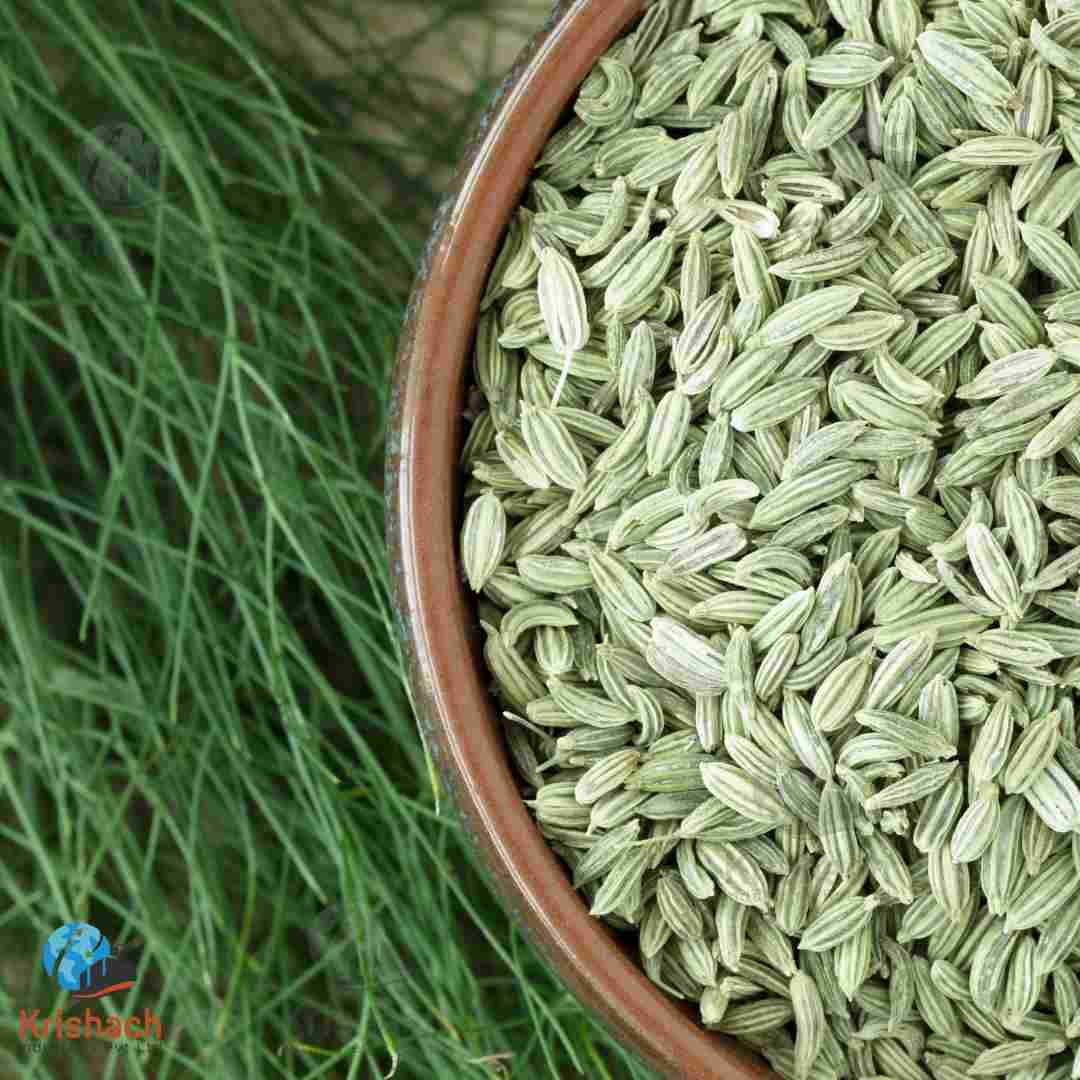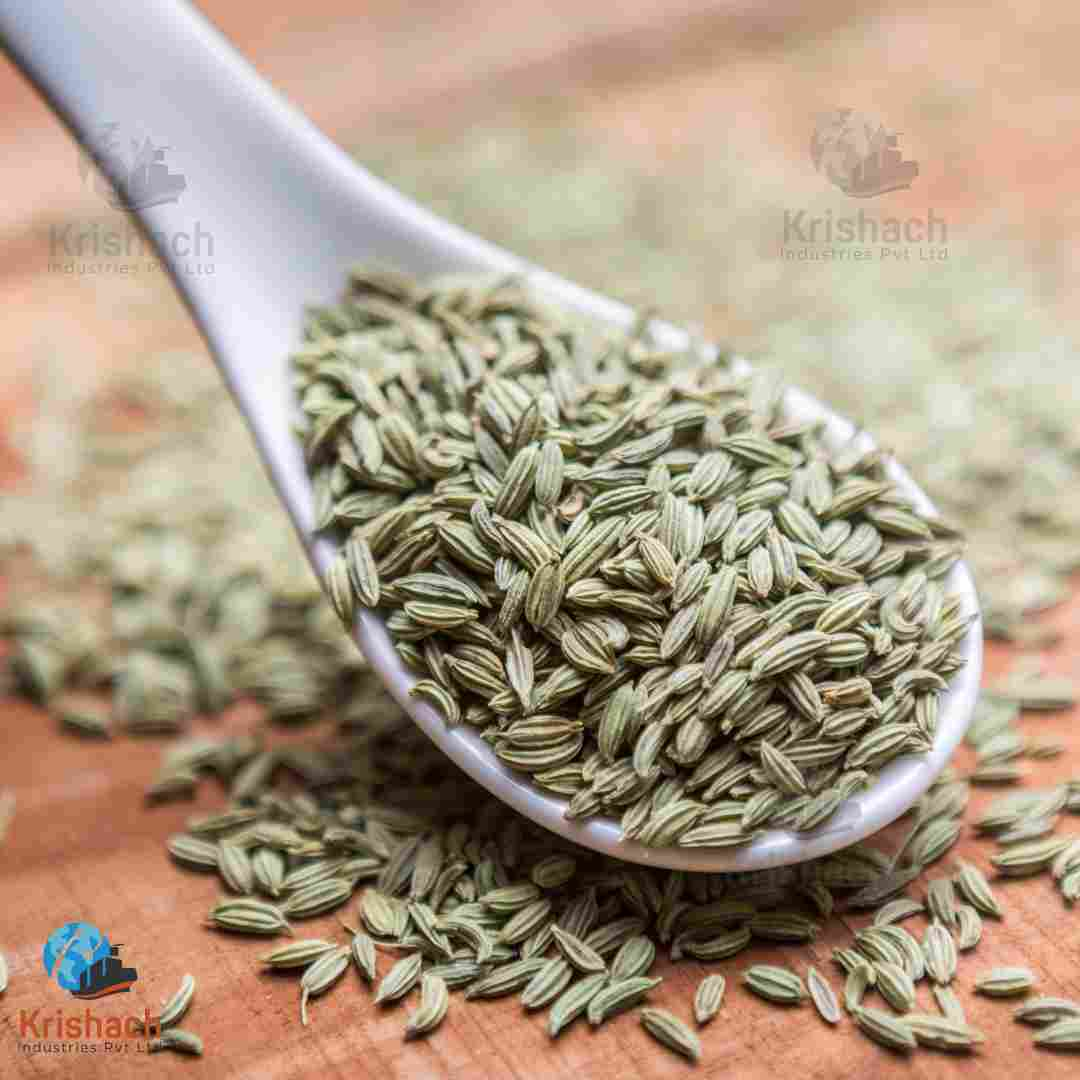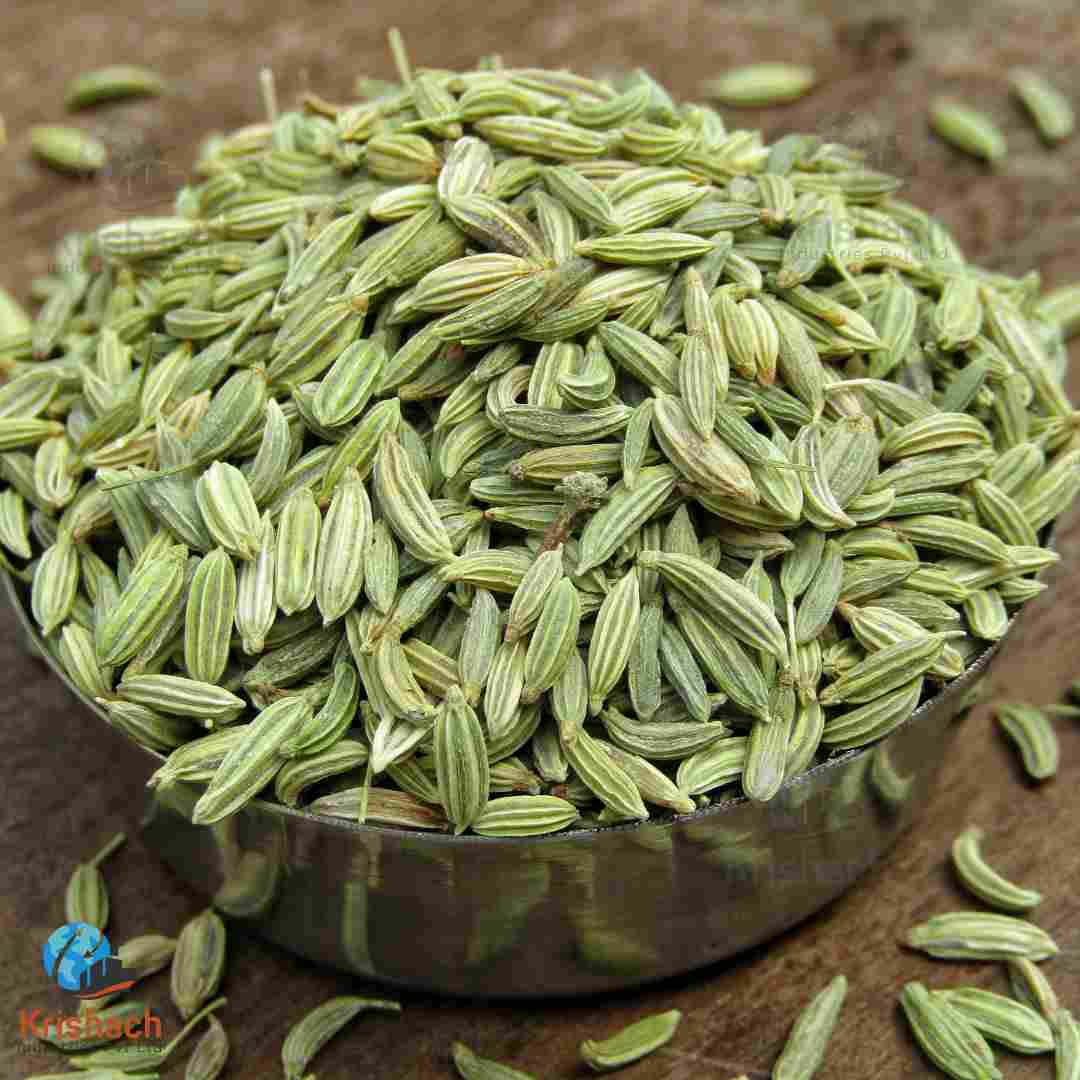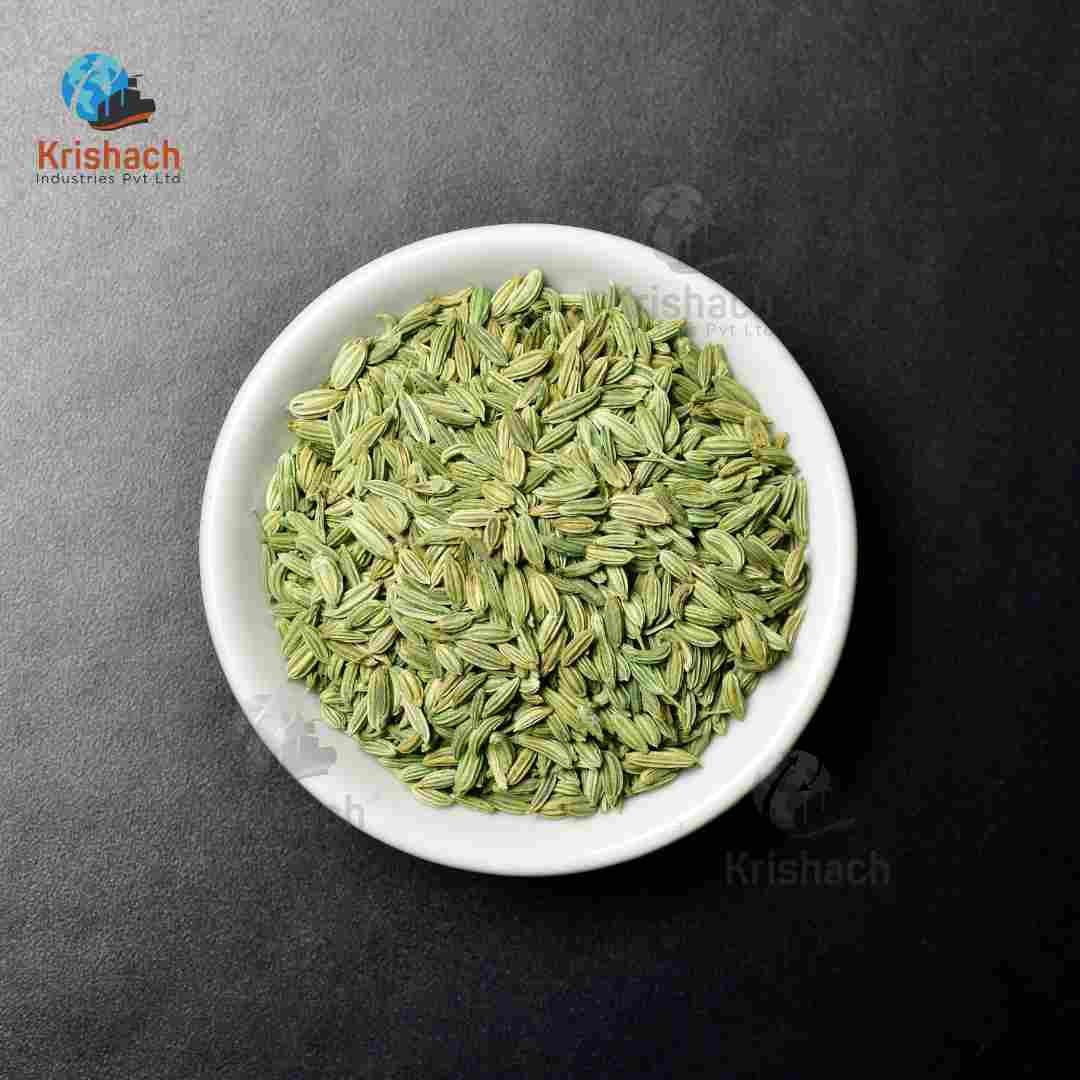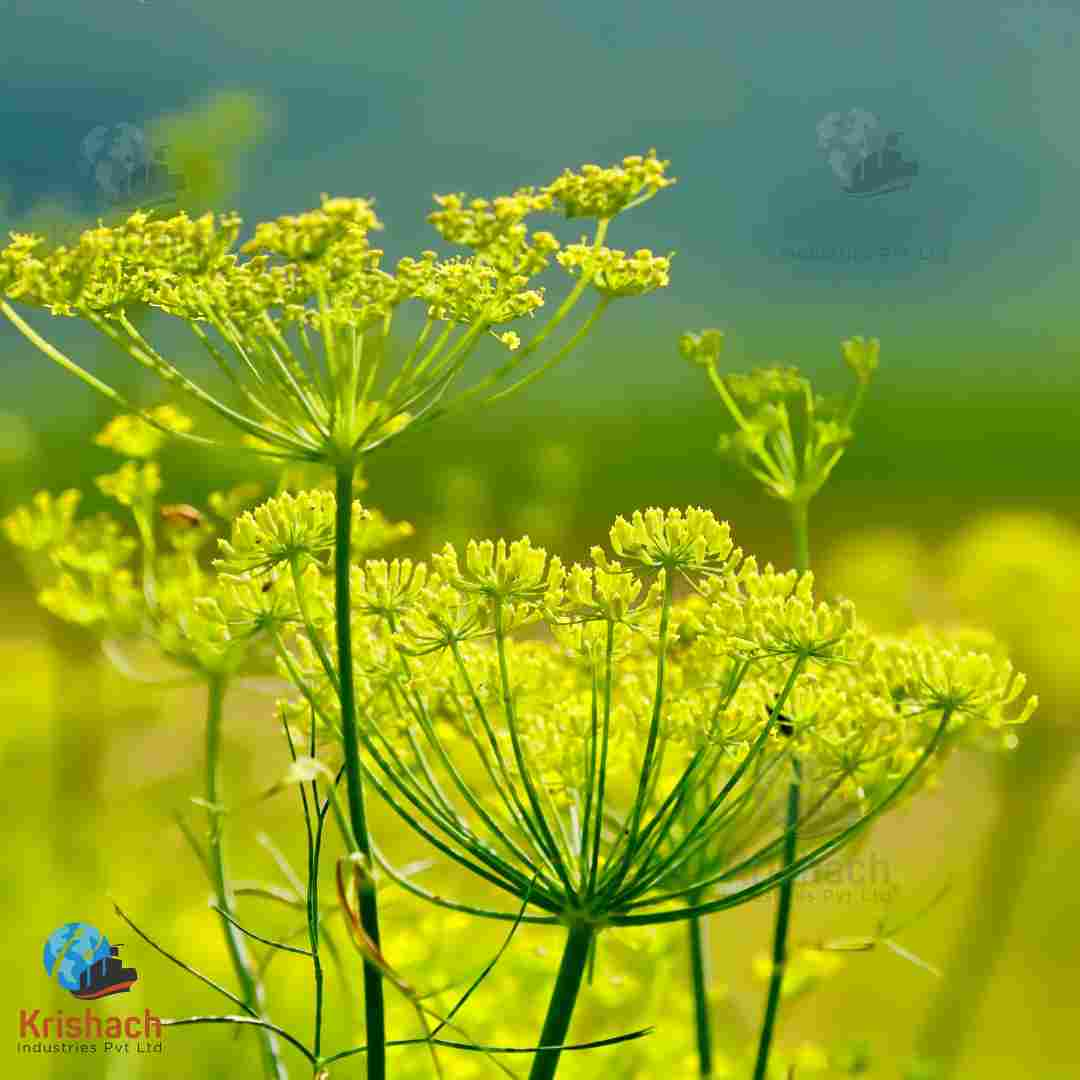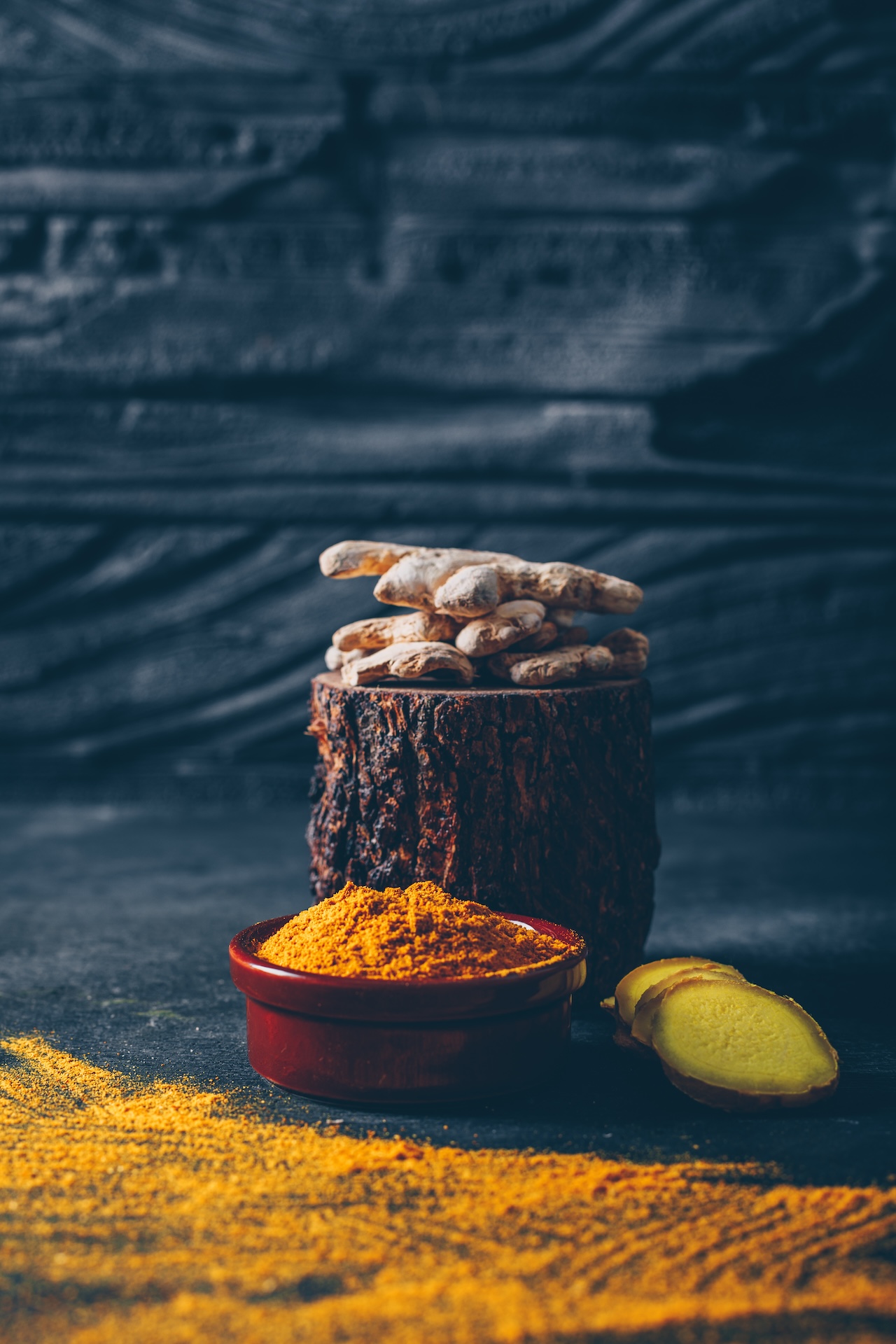Fennel Seeds Exporter from India | Wholesale Supplier – Krishach Industries
Funnel seed generally refers to the seeds of the fennel plant (Foeniculum vulgare), a perennial herb in the carrot family. These seeds are small, oval, and usually around 4-10 mm long. They have a distinctive grooved texture and are slightly curved, resembling tiny cumin seeds but slightly larger. Funnel seeds are green to yellowish-brown in colour, turning darker as they age.
Krishach Industries is a reliable exporter of premium-quality fennel seeds from India. Sourced from top regions like Gujarat and Rajasthan, our seeds are certified, aromatic, and delivered globally with precision packaging and logistics.
Key Characteristics of Funnel Seeds:
Shape: Oval, elongated, and slightly curved
Size: 4–10 mm in length
Texture: Grooved with fine ridges
Color: Green when fresh; yellowish-brown to grayish-brown when dried\
Aroma: Sweet, anise-like, warm, and herbal
Flavor: Mildly sweet, earthy with a licorice finish
Specification:
Culinary Uses & Applications
Fennel seeds are used widely in:
Indian curries, rice dishes, pickles, and digestive blends
Mediterranean and Middle Eastern spice blends and marinades
Bakery products, herbal teas, and flavored beverages
Mouth fresheners and ayurvedic formulations
Health Benefits
Fennel seeds are known for:
Supporting digestion and relieving gas, bloating, and acidity
Helping with hormonal balance and lactation
Rich in antioxidants, fiber, and essential oils
Used in herbal medicine for their anti-inflammatory properties
Cultivation Season in India
Sowing: October–November
Harvesting: February–March
Major Growing Regions: Gujarat and Rajasthan
Our Services
Quality Commitment at Krishach
Reliable Sourcing
We collaborate directly with farmers using traditional and sustainable farming methods, ensuring non-GMO, pesticide-free fennel seeds with rich aroma and essential oil content.
Premium Quality Assurance
Our products are tested and certified for:
FSSAI
ISO 22000
HACCP
USDA Organic (on request)
Each batch is monitored for:
Aroma strength
Moisture content
Essential oil levels
Purity and hygiene
Advanced Cleaning & Sorting Process
Our multi-stage quality control includes:
Pre-cleaning: Removal of large debris (stones, dust)
Grading: Size-based sorting
De-stoning & Magnetic Separation: Removal of heavy and metallic impurities
Gravity Separator: Ensures only fully matured seeds are selected
Color Sorting & Manual Checks: Uniformity and visual appeal
Moisture Control: Below 8–10% for extended shelf life
Packaging, Shipping & Delivery
Packaging Solutions for Export
We provide export-standard packaging for both bulk buyers and retailers:
Bulk (25–40 kg):
PP Woven Bags (laminated or non-laminated)
Multi-wall Kraft Paper Bags
Vacuum-sealed Sacks
Retail Packs (100g–5kg):
Laminated Pouches
Zip-lock / Stand-up / Resealable Bags
PET / PE / BOPP-based Food-Grade Materials
Final Packing:
Products packed into corrugated cartons
Shrink-wrapped and palletized for safe handling and transport
Export Documentation & Logistics
We manage complete export documentation, including:
Phytosanitary Certificates
Certificate of Origin
SGS Inspection / Fumigation Reports
Custom packaging and labeling based on importing country
Shipping:
Export from major ports (e.g., Mundra, Kandla)
Freight options: Air | Sea | Land
Support for FOB, CIF, DDP and other incoterms




